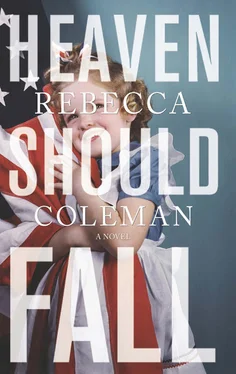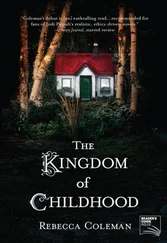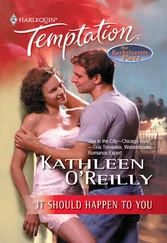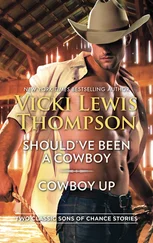“Did your boyfriend abandon you?”
I shook my head. “He’s up in New Hampshire with his family.”
“Sounds like abandonment to me.”
“I’m fine.”
He jiggled his knee through the awkward pause. Then he asked, “You want to order some Chinese or something?”
I blurted a laugh. “Chinese? On Christmas Eve?”
“Sure. My family does it every year. Nothing else is open, after all.”
“Why don’t you guys just have ham and sweet potatoes and whatever else everybody eats on Christmas Eve?”
“We’re Jewish.”
“Oh.” I tapped a finger against the side of my laptop, considering. It wouldn’t be difficult to make an excuse to get rid of Drew, but if I spent some time with him, maybe I could get some insight that would help Cade learn to deal with him. And the fact was, I was bored and lonely. And I did feel abandoned, after all.
“Sure, yeah,” I said. “Do you have a menu?”
* * *
We set up the cartons on the table in the lounge. Drew set the TV to a Seinfeld rerun. “Jewish Christmas,” he said. “A little bit fun and a little bit depressing.”
“Tell me about it.”
“Don’t you have family or anything?”
“Not really.” I watched him root around in the carton and produce a piece of shrimp. “I thought shellfish weren’t kosher,” I added.
“I don’t keep kosher.”
I offered him a slow grin. “You’re a Jewish Republican who doesn’t keep kosher. That’s original.”
“I’m not a Republican. God, no.”
“But you work for Bylina.”
“Yeah. I’m an opportunist.”
Seinfeld broke to commercial. A jangling advertising tune came on, several notches louder than the regular TV volume. Drew cracked open his soda, watching me as he drank from it. Whenever I’d been around him in the past, Stan’s friendliness toward him had led me to see Drew as harmless, if slightly arrogant, with a mild case of social awkwardness. But here, alone with him, the vibe he gave off had more of an edge to it. The arrogance was still there, but it felt creepier.
“Well,” I said when the volume died down, “why don’t you go to work for somebody who shares your views? Somebody who’s working on issues you believe in? That’s the point of being in politics, isn’t it? To make a positive change in the world.”
He eased back in his chair and set down his soda can. “Are you asking me to pull out so Cade can get the job?”
“No, I’m just asking why you’d even want it when you could get the same job working for somebody whose convictions are in line with yours.”
“I might pull out. It’s possible.”
I nodded. “If you don’t believe in it, you ought to. Don’t you think?”
“I don’t know,” he said. He spun the can in circles with his fingers. “I’m not sure I have the right motivation .”
For a few moments I puzzled over the strange response, my attention still cocked toward Seinfeld. Then all at once it clicked. I looked him squarely in the eye. “Drew,” I said with disgust.
He shrugged.
“I’m not even going to dignify that with a reply.” I snatched the delivery bag from the table and stuffed it into a garbage can. As I bustled around angrily he watched with a bemused detachment that unnerved me.
“You know why I admire Cade?” he asked.
My shoulders twitched. “Because unlike you, he has principles?”
“No. That’s not why.” His voice disdained me. “Because he’s so fucking ambitious.”
“Thanks,” I said icily. I saw now exactly why Cade detested the guy so much, and felt shamed by my naïveté. “I’ll pass that on to him when I tell him about this whole conversation.”
“If you want. He’ll be sorry you didn’t take me up on it. He wouldn’t admit it, of course. But he’ll wish you’d just done it and kept your mouth shut about it.”
“You have no idea what you’re talking about. Cade’s not like that at all.”
“As if you’d know,” he said, “when it’s all been sunshine and rainbows and snuggle sex for the two of you. I’ve been on the campaign trail with him, and I know a little different. Let me tell you, Jill. You don’t know a guy until you’ve seen him under pressure. Cade’s like everybody else. He only cares about one thing.” He held up a single finger.
“That’s the stupidest cliché ever.”
“Not sex,” said Drew. “Recognition.”
I hurried back to Cade’s room, dressed quickly and headed back across campus to my own dorm. The sidewalks were deserted. I thought of Cade sitting around his living room with his parents, his brother and sister, and seethed at both him and Drew. Here I was alone on Christmas Eve, hurrying away from the leering creep to whom I had afforded benefit of the doubt, all because Cade wanted to avoid the embarrassment of me meeting his brother-in-law. My messenger bag beat against the side of my coat, and I breathed into my hands to warm them. I knew what would sneak in just behind this anger: self-pity. That was how I would spend Christmas, and the next year I would dread the holidays all the more, remembering how miserable this one had been.
It doesn’t have to be that way, I thought. I jogged up the steps to my building, tossed a few things into my overnight bag, tugged on the hoodie Dave had just mailed back to me and headed out to my car. I thought about calling him, but it was late already and I didn’t want him to feel he needed to wait up for me. I had a full tank of gas and a key to my old cabin, and I would find him in the morning. He wouldn’t mind. Dave never did.
* * *
In the few photos I have of my mother and me together, it’s easy to see we don’t resemble each other at all. She was fairly tall, with honey-blond hair that kinked into unmanageable curls when the weather grew the least bit humid. Despite her coloring, she had an Italian face—a regal nose and long eyes, a smile that appeared to store a secret. Sometimes I wondered if she had hoped for a miniature version of herself, rather than the baby daughter she received—one destined to be fine haired and button nosed, with eyes so round as to seem perpetually surprised. Even as a teenager she had looked like a woman, while long into college I still had to pull out my driver’s license to be allowed into R-rated movies.
She never voiced the truth we both knew: that I looked like my father. It had to be true, because I resembled her family not at all, and yet she would never tell me who he was. Around the age of eight I entered a stage of nagging her with questions: what was his name, his job, where did he live, did he know about me. She brushed them off or changed the subject, until finally, when I was twelve and began asking again, she gave me her first sort-of answer.
“If you want to know the truth, Jill,” she said, using that wry monotone that never meant anything good, “I wasn’t in a very good place when I found out I was going to have you. And once I knew you’d be joining me, I wasn’t about to go back to that place to see if anybody wanted to tag along.”
I understood her meaning—that she had abandoned him, not the other way around. I stopped asking her after that; I knew enough about addicts by then to grasp that whoever he was, wherever he was, he was sure to disappoint me. And it had to be bad for him, because my mother was not one to assume someone was beyond hope. Padding around in her panty hose, her curly hair up in a messy bun from a long day at the office, she would pull the extra-long phone cord into the one bedroom and shut the door when one of the women she sponsored in AA called. If the call went on for a long time I would turn out the lights, make up the futon and try to sleep. Always I would overhear her calming and definite voice, and even though I knew she was handling a crisis—someone’s sobriety on the brink of failure—the sound of it would lull me easily to sleep. She was a sure guide, knowing the route through every situation. Eventually she would slip back out, hang up the phone in its cradle and lie down softly on the other side of the futon, because this bed was technically hers. Some nights I would move to my bedroom, but usually I feigned a deep sleep so I could nestle near her warmth all night, like a chick beneath her mother’s wing.
Читать дальше












